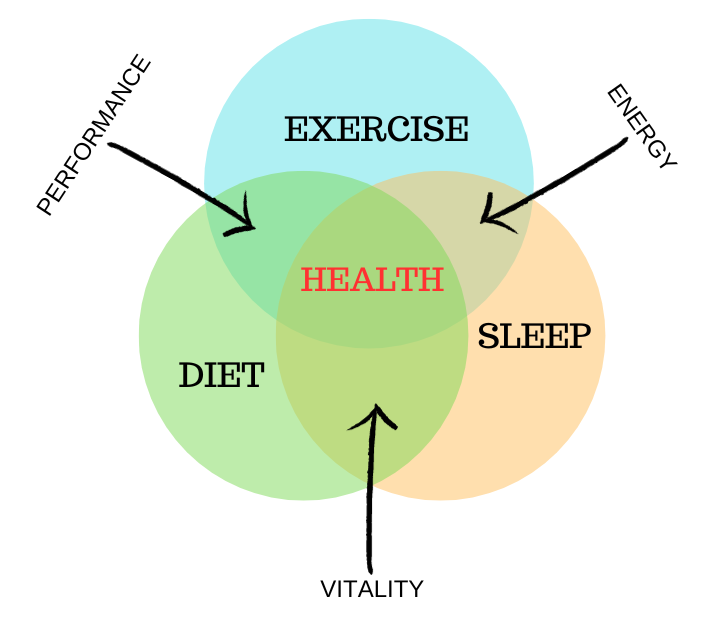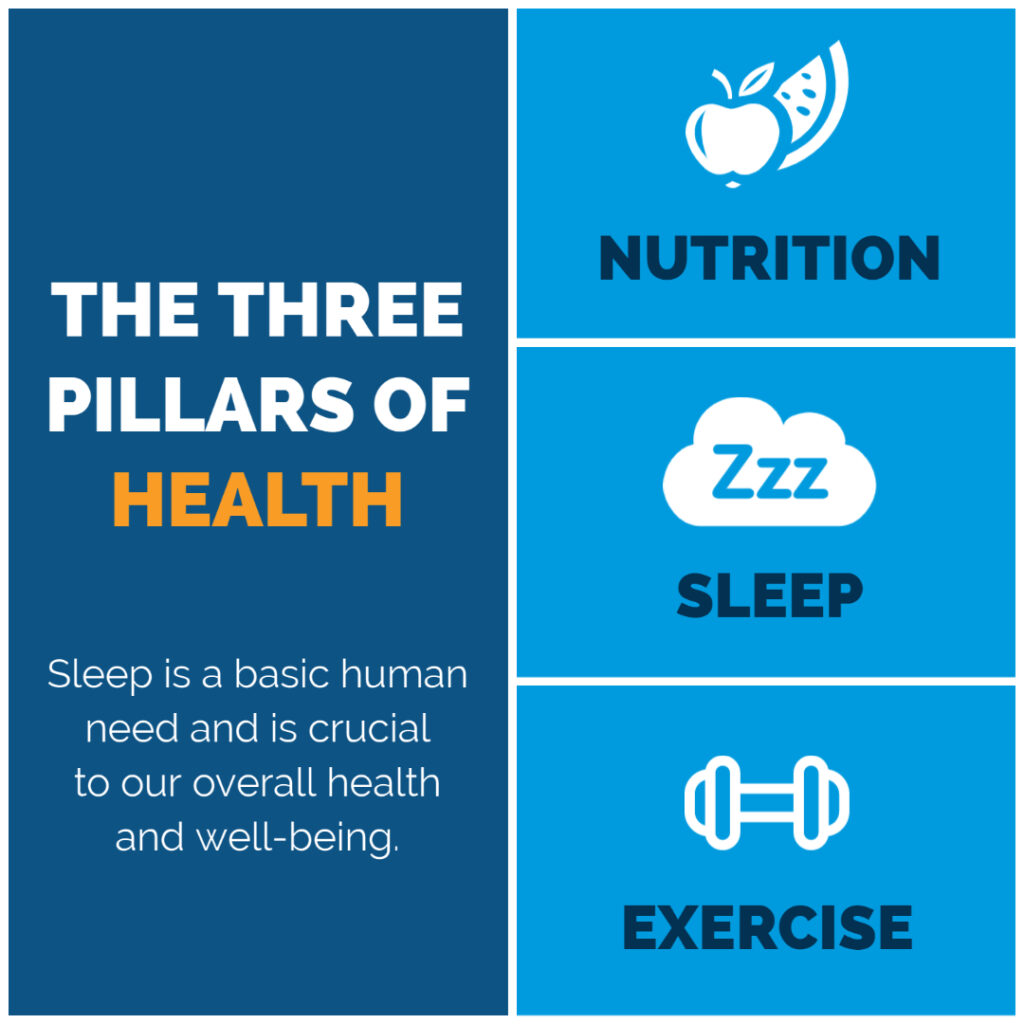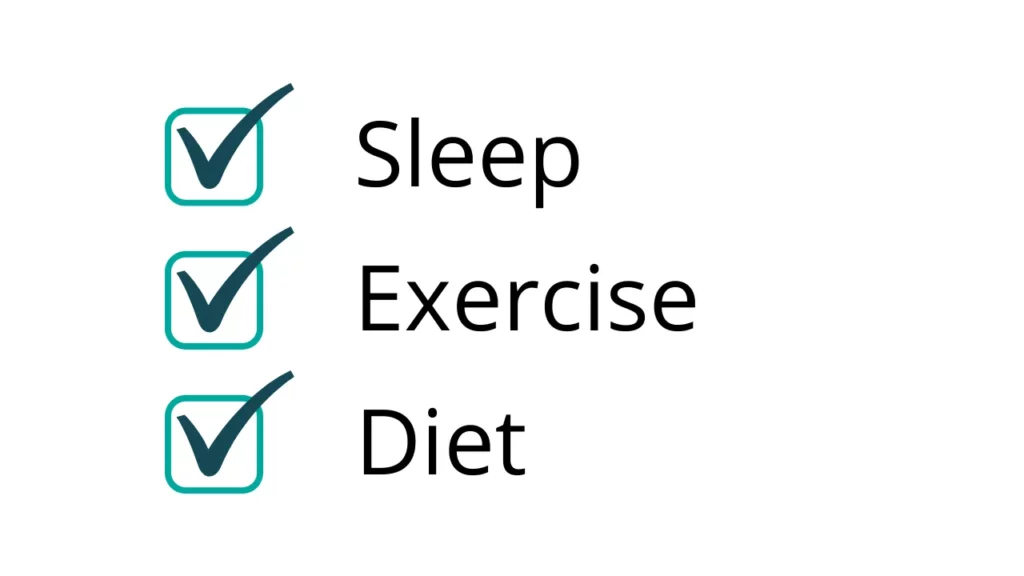
In therapy, regardless of the issue being discussed, we always include questions about diet, sleep, and exercise. Why? Because all three affect body chemistry, hormones, stress level, pain tolerance, communication and patterns of behavior.
The three pillars of a healthy lifestyle are nutrition, exercise and sleep. If these three are not where they need to be, there will definitely be problems in the body. But where these three overlap, that is optimal health. Which is why mental health has so many variables that contribute to it positively or negatively.

DIET
Diet has a significant impact on mental health as it affects the production of neurotransmitters in the brain, which regulate mood and behavior. A diet high in processed and sugary foods has been linked to an increased risk of depression, anxiety, and other mental health disorders. On the other hand, a diet rich in whole foods such as fruits, vegetables, whole grains, and lean proteins can improve mental health and reduce symptoms of depression and anxiety. Omega-3 fatty acids found in fish and nuts have been found to reduce inflammation in the brain and improve mood and cognitive function. Overall, a balanced and healthy diet is crucial for maintaining good mental health and can be a valuable tool for preventing and managing mental health disorders.

SLEEP
Sleep plays an important role in supporting good mental health. Getting enough sleep, seven or more hours, helps restore your brain while you sleep, can improve mood and increase productivity, and help reduce stress levels. Lack of sleep can contribute to a range of mental health problems, including depression and anxiety. Sleep deprivation can impair cognitive function, making it harder to concentrate and remember things. Studies have found that people who suffer from insomnia are more likely to experience symptoms of depression and anxiety. Therefore, prioritizing good sleep habits is essential for maintaining good mental health.

EXERCISE
There are numerous benefits from exercise for mental health. Exercise can reduce symptoms of depression and anxiety by releasing endorphins, and other hormones, which help a person to feel good. Regular exercise can improve cognitive function, including memory and focus. Exercise can also increase self-image and confidence through achieving fitness goals and physical abilities. It can provide structure to daily routines, which can buoy mental health. And exercise has been shown to reduce stress levels and promote better sleep, which were mentioned above.
What can you do to improve your diet, sleep and exercise? You probably already know some changes that need to be made. Why not start today? Then begin to tackle the others.
Your body, and your mental health, will thank you.
- Avoidance Behavior - April 23, 2024
- Stop Lying To Yourself - April 9, 2024
- Trauma: Two Significant Brain Changes - March 26, 2024
